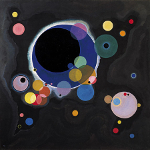The projective consciousness model (PCM) is a recently developed computational model of consciousness that allows an agent to project itself by imagination into an internal world model constantly updated through Bayesian inference from sensory evidence. The PCM acts to minimize free energy (FE) which is related to the divergence between predicted or preferred states and experienced states. The PCM uses its imagination to evaluate non-local situations. To increase psychological realism, we added a basic episodic memory to the PCM, which allows an agent to explicitly project itself in its past. As the PCM agent explores simulated worlds, it keeps a memory of its location and experienced FE across multiple layers of appraisal.
When FE cannot be further minimized across possible local directions of action, the agent projects itself across space based on prior beliefs about either the present or the past, in an attempt to further lower its FE. Using simulations, we show that recalling pleasant memories allows a PCM agent to lower FE, in situations where it is stuck with no other solution for FE minimization based on direct action or projections of possible future actions. Nostalgia is often defined as taking pleasure in recalling positive, soothing past events as a result of negative feelings in the present. The behavior of the PCM, which emerges from combining projective mechanisms, FE minimization and an episodic memory, is consistent with this definition.
Nostalgia as an emerging property of the Projective Consciousness Model
| Online user: 20 | RSS Feed |

|

 PDF version
PDF version